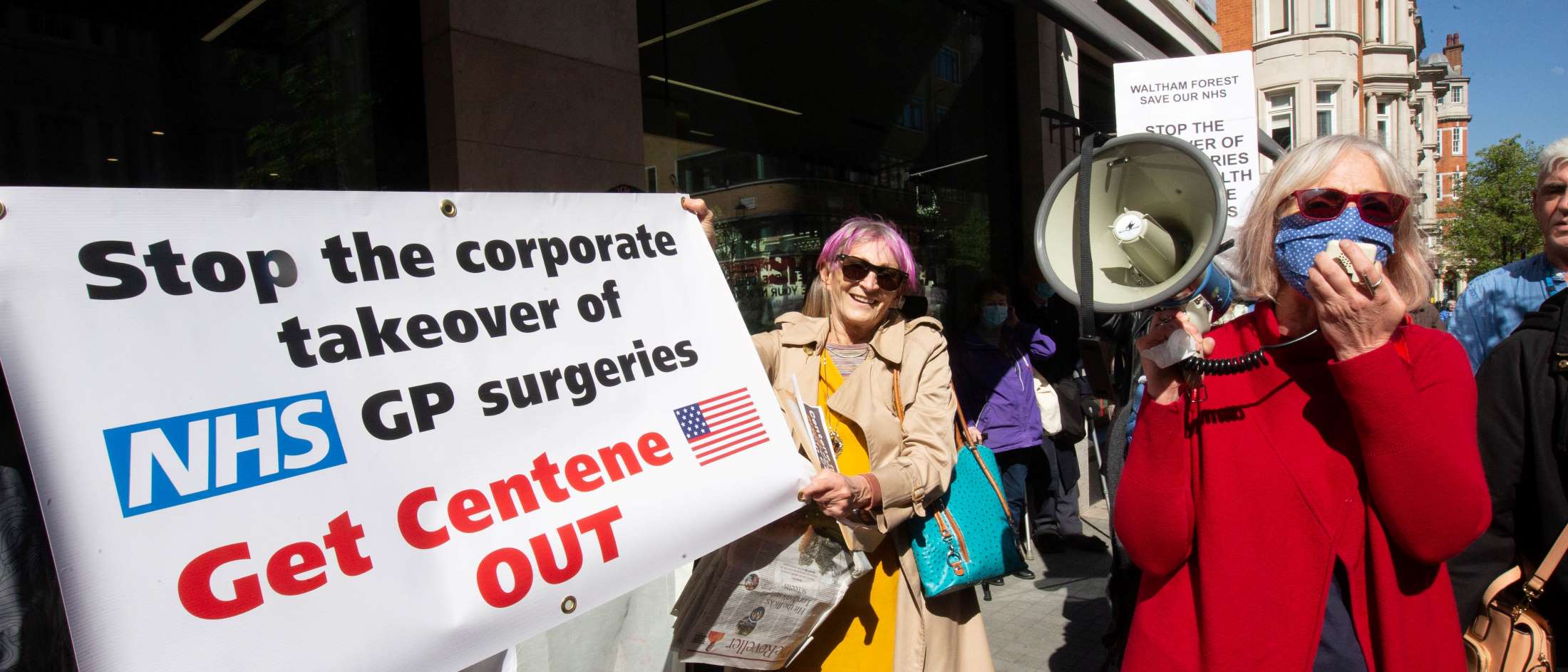‘Brexit should carry health warning’
Earlier this year, Unite commissioned a damning study about the dangers that the Transatlantic Trade and Investment Partnership (TTIP), an EU-US trade currently being negotiated, would pose for the National Health Service.
The analysis, undertaken by one of the UK’s foremost QCs on European law, found that measures in the deal that are supposed to protect the NHS from rampant privatisation are, in their current form, too weak and can easily be manipulated in courts of law.
The evidence prompted former health secretary Lord Owen to argue that the threat posed by TTIP to the NHS was reason enough for the UK to back leaving the EU once the referendum takes place this summer.
“The legal opinion is very clear that there are a myriad of dangers if health comes under the current TTIP system,” Lord Owen said.
“The government could apply for an exclusion but even if we do that we are still left with the problem that the EU has gone more and more into the health service, because as more marketisation comes in there it becomes a greater justification for not treating it as an exception … such as the insistence on putting more and more out to contract,” he added.
But despite citing Unite’s analysis by Michael Bowsher QC as evidence supporting Brexit, Lord Owen failed to draw from the report’s main conclusion.
“The safest course,” noted Bowsher, “would be for the NHS to be the subject of a specific exclusion contained within the main body of the TTIP text.”
Unite assistant general secretary Gail Cartmail defended Unite’s position in campaigning to remain in the EU and explained why Lord Owen was mistaken.
“The legal advice does show there is real and significant danger for the NHS to be part of the TTIP trade deal,” she wrote in a letter to the Guardian yesterday (April 6).
“However, the legal opinion Unite commissioned also made it very clear that the UK government has the power and ability to grant a full exemption to the NHS from the entire scope of TTIP.
“Unite believes that the UK government granting a blanket exemption is currently the best way to protect the future of the NHS from any adverse effects from TTIP as other countries have done for key areas,” Cartmail added.
She pointed out that while Lord Owen has been a long-time defender of the NHS, “many of the leading Tory figures in the â€Leave’ campaign have been full supporters of the government’s reforms aimed at privatising and contracting out the NHS”.
Indeed, privatisation of the health service has never taken place under the aegis of the European Union – its main perpetrators have rather been Tory-led UK governments, who kick-started rampant privatisation under the health and social care Act of 2012.
Health warning
Health professionals themselves have recently warned that the UK leaving the EU – far from protecting the NHS – would in fact do just the opposite.
In a letter to the Times, more than 200 health workers, including doctors, nurses, medical students and other health professionals argued that a potential Brexit would be disastrous for the NHS.
“As health professionals and researchers we write to highlight the valuable benefits of continued EU membership to the NHS, medical innovation and UK public health,” they wrote.
“We have made enormous progress over decades in international health research, health services innovation and public health,” they noted.” Much of this is built around shared policies and capacity across the EU.”
“Our health services, health research collaborations and public health protection are more robust within the EU,” the health workers asserted. “Leaving would damage the progress we have made together. Brexit should carry a health warning.”
In a separate letter, four former health secretaries, Alan Milburn, Patricia Hewitt, Andy Burnham and Alan Johnson, explained that the UK pulling out of the EU would substantially financially damage an already cash-strapped NHS.
“Leaving Europe will not mean more money for the NHS,” they wrote. “It will mean less. Independent experts have repeatedly shown that leaving will seriously damage our economy with some suggesting Britain would enter recession.
“That means reduced funding for public services – strangling NHS finances, with potentially frightening consequences for staffing, waiting times, and levels of service care.”
Gail Cartmail noted that remaining in the EU was the course of action that would best protect the NHS, as well as protecting working people’s rights and their future economic prosperity.
“Unite will continue to campaign vigorously both for the carve out of the NHS from TTIP and for a vote to Remain in the EU in the interests of our members’ jobs, the employment rights that UK workers derive from EU law, and in the interests of peace and unity on the continent,” she said.
Find out more about the EU referendum and Unite’s position here.
 Like
Like Follow
Follow


